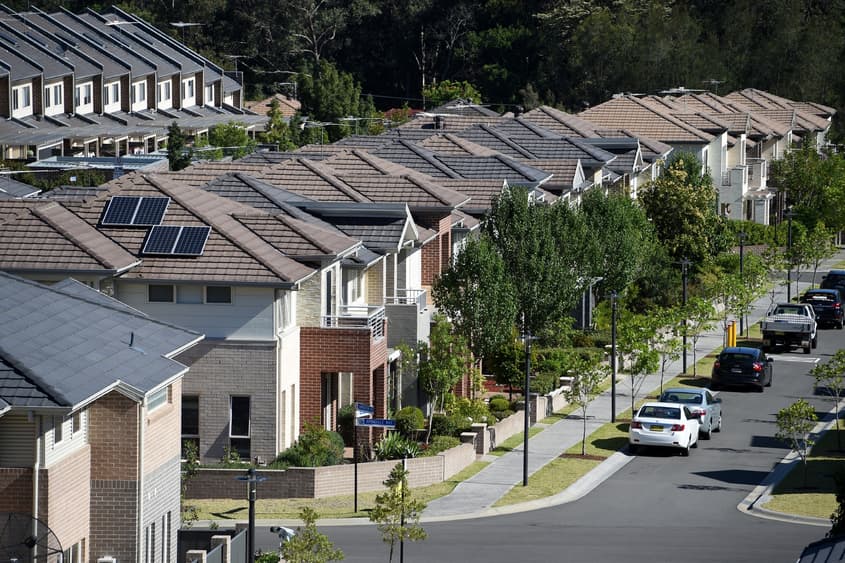While vulnerabilities in the financial markets is not a good thing, strangely this could help first home buyers get into a home of their own.
Mon 24 Nov 2025 06.00

Photo: AAP Image/Dan Himbrechts
Australia’s financial regulator has sounded the alarm about the build-up in high-risk debt in the housing market particularly by investors. While vulnerabilities in the financial markets is not a good thing, strangely this could help first home buyers get into a home of their own.
This weird state of affairs comes about because the Australian Prudential Regulation Authority (APRA) has the powers to direct banks not to lend to certain borrowers if they think it will create too much risk in the financial system. If it uses these powers to limit lending to investors, then this will push them out of the market meaning more auctions won by first home buyers.
House prices have been driven higher because property investors have flooded into the market and bid up prices. They have been spurred on by two massive tax concessions: negative gearing and the capital gains tax (CGT) discount. Together these tax loopholes are worth $13 billion a year and are helping investors outbid first home buyers and push up house prices.
The Federal Government is spending $13 billion a year to make housing less affordable.
As interest rates have come down this year, the amount of money being borrowed by investors has increased to the highest in 10 years. This has the regulator worried.
The “highest in 10 years” is important. It was 10 years ago in 2015 that APRA last intervened in the lending market telling banks to limit lending to investors, as well as those with interest only loans.
The result was that interest rates on investor loans went up compared to owner occupier mortgages. Consequentially, house prices came down.
In fact, it was the largest slowdown in house prices in the last 25 years. They fell about 10% over 18 months. This was one of the few periods where housing became more affordable.
As Australia Institute research showed, these kinds of interventions can make housing more affordable.
While more housing supply will help, it will take years for the new housing to be built. These reforms can make housing more affordable much sooner.
Unfortunately, APRA can only use these powers if it is worried about the stability of the financial system. But the Government could change the rules so that APRA could act on housing affordability.
The best reform for housing affordability is to scrap the CGT discount and limit negative gearing. This would push investors out of the market by closing huge tax loopholes that make investing in housing so tax effective. But a solution in the meantime could be to force banks to increase interest rates on investor mortgages.
Pushing out investors has helped make Victoria one of the few bright spots for housing affordability across the country. In 2024 the Victorian Government introduced higher taxes for investors, making investing in residential property less lucrative.
At the time investors were outraged and threatened to sell up. But investors selling up is exactly what is needed. They sold and first home buyers bought.
Since 2024 house prices have flatlined in Melbourne. According to Cotality, median prices increased just 5% compared with 15% for all capital cities. This saw Melbourne fall from the fourth most expensive capital city to the third cheapest.
If risks in lending are on the rise and APRA acts to limit investor mortgages, then this is great news for aspiring first home buyers. It will show again that it is investors that are pushing up prices and preventing people owning their own home.
But rather than having to wait for risky investors to threaten the financial system, the Government should act.
Housing should first and foremost be about a safe and secure place to live, not a way to make money. It is time to put first home buyers before investors.